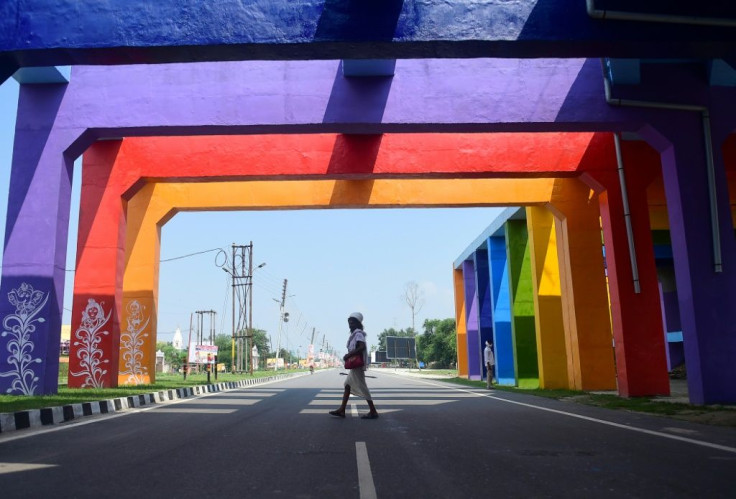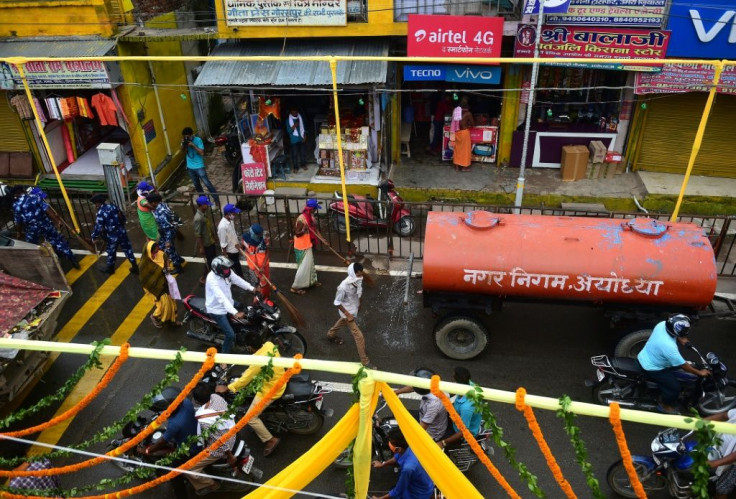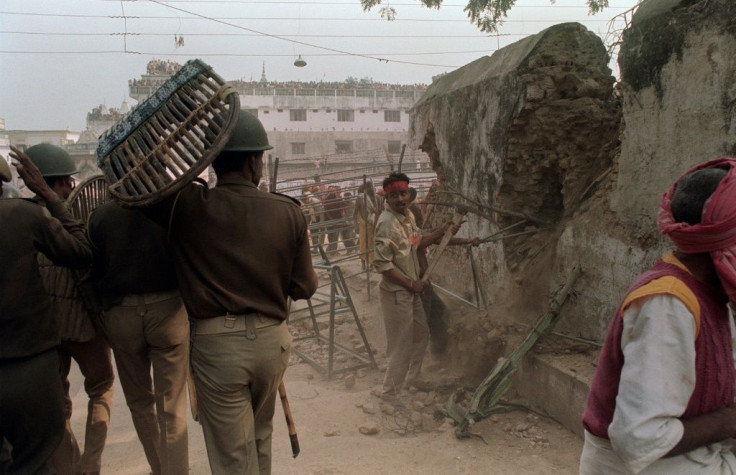India's Modi To Lay Hindu Temple Foundations At Flashpoint Holy Site
The flashpoint Indian town of Ayodhya geared up Tuesday for a ceremony attended by Prime Minister Narendra Modi to lay the foundations for a Hindu temple on the ruins of a mosque destroyed by a mob in 1992.
The building of the temple in northern India, starting on Wednesday with a colourful rite broadcast live on TV, has long been a pledge of Modi's Hindu nationalist Bharatiya Janata Party.

A mosque stood on the site for almost 500 years until it was demolished by Hindu zealots in 1992.
That sparked riots across the country in which 2,000 people, mainly Muslims, died -- some of independent India's worst sectarian violence.
Devout Hindus believe that Lord Ram, the warrior god, was born in Ayodhya some 7,000 years ago but that a mosque was constructed on top of his birthplace in the 16th century.

In November, India'a top court after a legal battle lasting decades awarded the site to Hindus, giving Muslims another location to build a new mosque.
It was a stunning victory for the BJP, but for critics, it marked another step in Modi's agenda to turn officially secular India into a Hindu nation, marginalising its 200 million Muslims -- something he denies.
Wednesday also marks one year since Modi's government imposed direct rule on Muslim-majority Kashmir, another long-standing BJP pledge.

The Ayodhya ceremony, held at a time recommended by astrologers, has been curtailed because of the coronavirus, with at least two priests as well as Modi's right-hand-man and Home Minister Amit Shah testing positive.
But it will still be a grand affair beamed onto large screens around India and even on the huge displays at Times Square in New York, reports said.
Hindus around India have also been asked to light earthenware lamps.
Those attending include 135 "revered saints" and Mohan Bhagwat, the head of the BJP's hardline and militaristic parent organisation Rashtriya Swayamsevak Sangh (RSS), who will share the stage with Modi.
Soil from almost 2,000 holy sites around India and water of around 100 holy rivers will be used in the foundations, as well as silver bricks and a "time capsule" with information written in Sanskrit on copper plates, reports said.
The temple will also include a shed for cows -- considered sacred by Hindus -- as well as a huge prayer hall.
"Tomorrow is the foundation of a very different kind of structure for the Indian Constitution," Pratap Bhanu Mehta, former president of the Centre for Policy Research (CPR), told AFP.
"It's not a reflection of a new temple but it's a reflection of the fact that the fundamental constitutional structure of India is changing."
© Copyright AFP 2024. All rights reserved.











